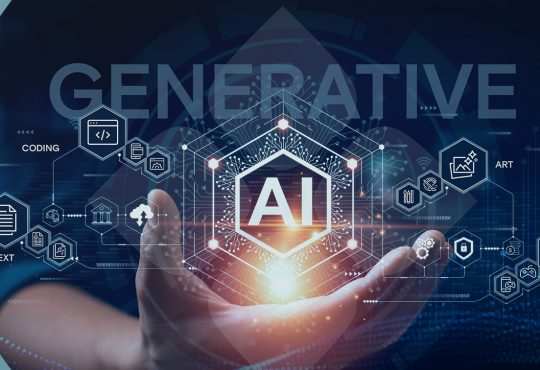By Muddassar Nazar
Currently, artificial intelligence (AI) is changing many sectors of the economy, including education. It provides several opportunities to improve teaching and learning, support unique instruction, improvise tests, and broaden access to high-quality education. In response, there has been a major investment in adopting AI-powered educational technology, leading to a notable expansion of this technology inside the education sector. In 2022, the education sector’s AI market was valued at USD 4 billion, according to a survey by Global Market Research. This industry is expected to develop at a compound annual growth rate (CAGR) of 10% in the upcoming years.
Although artificial intelligence (AI) provides educational institutions with numerous benefits, it also has certain ethical consequences that participants must carefully consider. The main issues with educational technology are transparency, privacy, and statistical biases.
Biases and discrimination in algorithms
Biases pose a serious ethical problem for educators since they can result in judgment and stereotyping, which might hinder a student’s advancement. Since AI systems are trained by humans, their biases and preconceptions are likely to be reflected in them. It could result in unfair and discriminatory consequences for some student or instructor groups. For example, recommendations and instructions may not be helpful for students from different backgrounds if AI is trained mostly on data from students in that group. Consequently, it may unintentionally maintain educational disparity.
Privacy and data security
When students and teachers interact with these platforms by submitting assignments, uploading educational content, engaging in online forums, and other activities, they leave digital imprints. As a result, AI systems tend to collect, store, evaluate, and interpret massive amounts of critical information, such as academic achievement, conduct, preferences, location, and so on. This could undermine data and privacy protection rights, especially if the data is used for other purposes other than teaching, such as marketing, profiling, and so on.
Accountability and disclosure
Accountability is another ethical issue that AI-powered education technology tackles. Since the outcomes are reliant on the data that is collected, the opacity makes it difficult to hold people accountable for their activities. Even though AI systems are dependable for a variety of functions, they remain a black box since their decision-making process is difficult for humans to grasp. AI may work in complex trends that students, instructors, or other participants will find difficult to comprehend. This may limit the ability to trust, validate, or even challenge the AI’s outcomes.
Solutions to consider
To protect human rights and dignity, maintain educational efficiency, and create inclusion and equity, ethical issues associated with AI in terms of bias, privacy, accountability, and transparency must be properly addressed. This can be accomplished effectively by taking a multi-stakeholder strategy that includes effective collaboration among educators, policymakers, researchers, developers, and others. Collective decision-making must prioritise the development of ethical frameworks, the implementation of ethical norms, the promotion of awareness, and the strengthening of ethical governance and legislation. These phases are expected to assist decision-makers in addressing the ethical concerns of AI systems and upgrading them to make them reliable, trustworthy, and efficient.
Putting everything into consideration
AI in education has enormous potential for improving student learning; yet, ethical concerns should be addressed concurrently. The necessity of the hour is to apply cutting-edge AI-powered educational technology while respecting human rights, dignity, inclusivity, equity, and ethics. To create reliable solutions, regulations, structures, and norms, all parties must engage in discourse.
As we harness the power of AI in education, we must tread carefully in these ethical concerns by encouraging human intervention for the technology to be employed more compassionately and responsibly. We will ensure that AI-powered education not only safeguards students’ rights, but also encourages a transparent, equal, and dependable learning environment.

(The author is Muddassar Nazar, CEO, Birla Brainiacs, and the views expressed in this article are his own)






